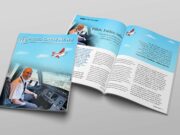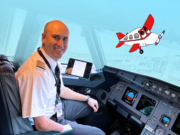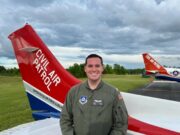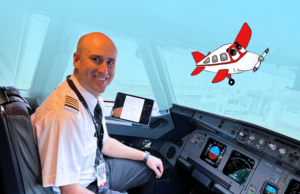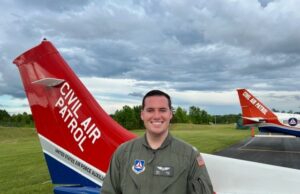
I am frequently asked, “I’ve got my private/commercial/airline transport certificate, now what?” And I always think to myself, “Why are you asking me? Was your goal to acquire that certificate or was your dream to become a pilot? What does being a pilot mean to you? Shouldn’t you have thought about this before you earned the certificate? The certificate is a means to an end, not the end in itself, isn’t it?”
So, what do you do when you finally earn the title of pilot? If you haven’t already, establish your priorities. If you dream of being an airline pilot, nail down specifics. Do you want to travel internationally and fly widebodies or would you prefer a career in the charter industry? What about full-time flight instructing? What is a satisfactory income? What hobbies would you like to pursue outside of aviation? How would your spouse/partner fit into this dream? Where would you like to live? Are you willing to commute? If you don’t establish goals, you’ll never be satisfied. Human want knows no end.
With the long-term goals outlined, determine what is needed to get there. Consider both short- and intermediate-term requirements. First, look at tangible requirements, then at intangible requirements. For example: I chose to become an airline pilot. Basic requirements for most major airlines include a four-year degree, 1,500–3,000 hours flying, and jet experience. Take the intermediate goals (1,500 hours and a four-year degree) and turn them into short-term goals.
If you have a CFI with 400 hours, you could aim to fly 600 hours per year and be at a regional airline in two years, therein obtaining the jet experience needed for major airlines. If you haven’t started working toward your degree, plan to take courses year-round and have three quarters of your schooling completed by the time you reach 1,500 hours. Investigate on-line education options. Turn that one-year goal into a monthly goal; 50 hours each month equals 600 in a year. If you miss one month, make up for it in the subsequent month.
If you are dreaming of learning to fly, sit down and evaluate your finances and workload. Can you pay for flight training immediately with cash on hand? If yes, jump right in. If no, evaluate your financing options. Consider working overtime, saving monthly, and studying for the written exams. In a year or less, you could hit the ground running on your flight training.
If you want to own a flight school, be an Alaskan bush pilot, or fly Part 135 charters, follow the same process. Achieving anything as complex as learning to fly is hard, but identifying steps and making a plan of action is all that is needed to succeed. Take that big challenge and repackage it into bite-sized goals. You’ll be amazed by what can be accomplished in one or two years of dedicated effort.
What intangible things make an ideal pilot? What hobbies are out there that can contribute to personal wellbeing, character development, and (indirectly) career development? Good airline pilots are leaders, strong communicators, charismatic, and experts in their craft. What hobbies exist that can promote those attributes? Playing competitive sports can promote leadership and communication skills. Continuing to fly general aviation or seeking additional ratings such as seaplane or lighter-than-air will advance your knowledge of the field. Reading books on the history of aviation, physics, or leadership can round out your knowledge. Joining a public speaking group or volunteering with nonprofits could benefit communication and interpersonal skills. By no means is this list comprehensive, but use it as a guide. Find hobbies that can benefit your overall character and advance your goals.
Along the way, you will meet people of diverse backgrounds. Leverage their knowledge. Are you a financial wizard? If not, ask your friends about their investments, retirement accounts, etc. Seek professional advice. Are you a first-generation pilot? Make friends with captains, flight instructors, and retired military folks who can fill you in on the nuances of the industry. Focus on building as many bridges as you can and look for mentors in everyone you meet. Most people are willing to help in any way possible — you just have to ask.


